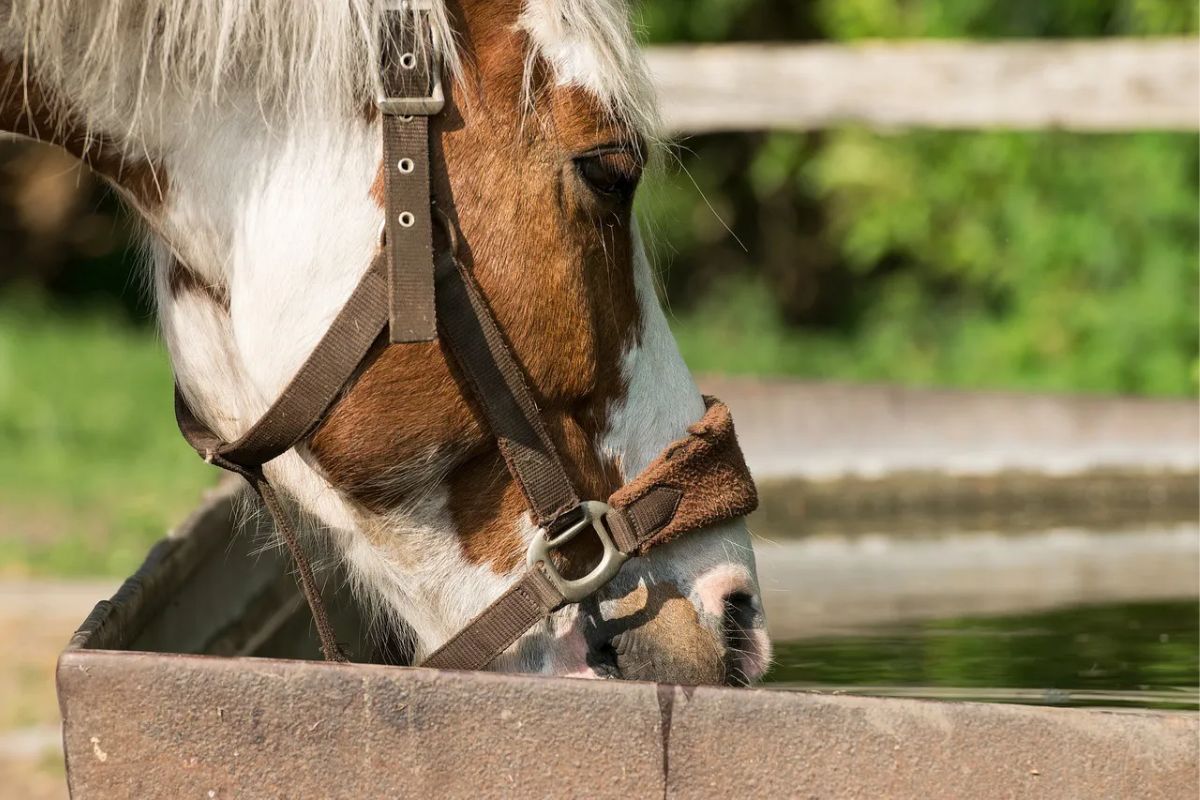Menu

An average horse drinks around 35 litres of water a day – some even more. But why do they require so much? Here are some tips and reminders that might help you understand the importance of water for your horse, and what you can do to ensure it drinks as much as possible.
While horses may fancy cool water, they tend to drink more if it's tepid – even in warmer weather. This was evidenced by an American study. Another study indicates that horses tend to avoid drinking water below 7°C. Thus, it can be challenging to make sure your horse drinks enough during the colder months. Warming the water a couple of times a day can be a good idea.
A horse should drink at least 50 ml of water per kilogram daily. If not, they risk getting colic. This means a 600 kg horse should drink at least 30 litres of water on an average day – and even more when it's hot. However, it's perfectly normal for an average horse to drink up to 35 litres daily just to stay alive.
Horses in strenuous labour can sweat up to 15 litres an hour and therefore might need around 50 litres of water daily. This applies to military and racing horses, for instance. Broodmares also require extra water as their bodies need more fluid to nurture and care for a new life.
A significant portion of a horse's body weight is water, actually, a whopping 65%. On average, that's about 350 kg. Hence, it's evident why they need to consume a lot of liquid to keep going.
Read also: 5 alternative ways to cool your horse down in the summer heat
Since muscles need oxygen to function and blood flow, which carries oxygen to the muscles, is reduced when hydration is poor, a horse's performance can naturally deteriorate. This also means that waste products post-training are transported away more slowly.
A dehydrated horse is at a much higher risk of succumbing to bacteria and viruses. This is partly due to impaired blood circulation, which makes it harder for the body to fetch energy to fight off invaders.
Water isn't only crucial for a horse's hydration. It also carries numerous nutrients naturally sourced from the environment, like calcium and iron. Especially hard water, which contains a significant amount of calcium, benefits the horse's bones and teeth.
Forage like hay, straw, and fescue absorbs a great deal of moisture – much more than grains. For comparison, fresh grass contains about 80% water, while hay seldom exceeds 16%. The water content in silage can vary greatly, from 15% to 70%. Typically, it contains around 30%. All in all, horses fed on dry forage usually need more water than those grazing on grass.
A water bowl should dispense at least 8 litres a minute. You can test this by filling the bowl and placing a bucket underneath, letting it run for a minute. Additionally, horses need water as clean as we do, so regularly clean your water troughs and bowls.
A helpful hint for when a horse won't drink, or when it's hot and the horse needs more fluids, is to flavour the water slightly. Some suggest apple juice, while others prefer adding a handful of mash, beet pellets, or the like. This makes the horses more inclined to drink, helping them consume a significant portion of the necessary water. Electrolytes can also be added, often in liquid form. Moreover, it's believed that hard water tastes better than soft water.
Sources: Vet emergency services, Dangro, and Pavo.